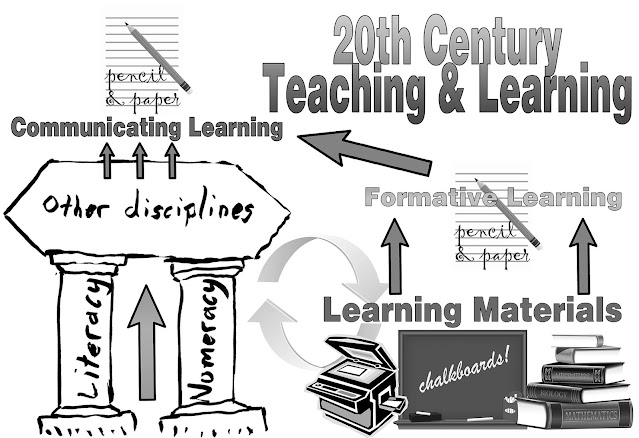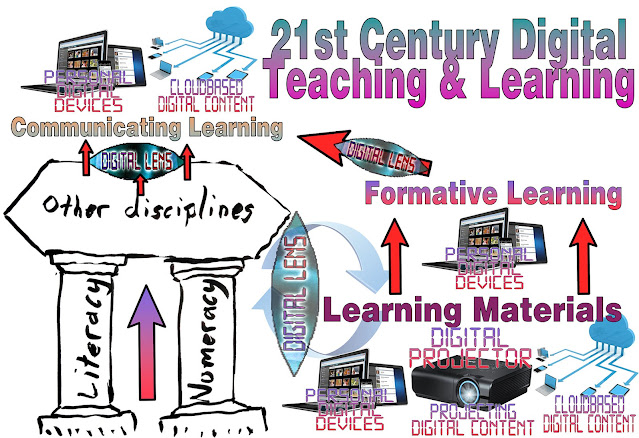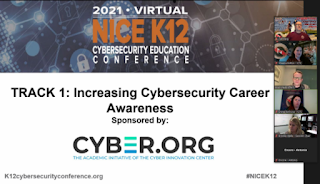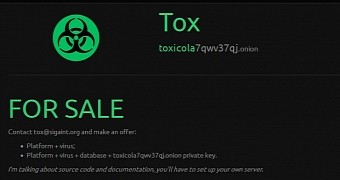I've been
battling against digital illiteracy in Ontario's public education system for going on a decade now and I'm frustrated at the
slow rate of change. I've applied for multiple positions at the board and ministry levels and watched as future administrators get moved into these positions and
fail to move the needle before they evaporate off into management. Perhaps my mistake is that I want to take on a curriculum enhancement role not to escape the classroom but to actually
improve system response to an ongoing crisis that everyone else seems to want to sweep under the rug.
Considering
Ontario's current state of affairs, I'll probably have to wait until after
June 2nd for us to get any traction with this. When Ontario comes to its senses (if it doesn't, I think we're moving), I'd really like to see us
address digital illiteracy, but not just for the
societal benefits it would provide - my actual interest is in developing a cyber-awareness curriculum that improves Canada's ability to survive and thrive in a networked world while also clarifying this hidden cyber-pathway for students capable and interested in pursuing it.
Unfortunately, cyber and information security aren't foundational digital abilities, they are advanced, complex skillsets that are developed on top of more simple fluencies. An academic comparison would be writing a complex essay of a challenging piece of writing in English class. In order to tackle the dreaded Hamlet essay, a student would need advanced reading skills with the ability to tackle complex vocabulary and grammar that includes an understanding of both poetic syntax and the chronological difficulties inherent in reading something over four hundred years old. This contextual challenge alone would stress most people's language skills. On top of all that, the writing itself is a complex set of skills developed on top of simpler abilities. Students would need to understand spelling and grammar, and sentence construction and paragraph construction and argumentative theme development across the entire paper - it's a staggeringly complex ask that we can only attempt in high school because we've placed literacy as a foundational skillset in our education system.
With that perspective in mind, I thought I'd try and take a run at infographicking how our analogue education system has digitized over the past twenty years. This digitization of education has ramped up dramatically in the past decade - much of what I've
written in Dusty World has orbited around this sea-change in digital teaching and learning.
The suddenness of this change has left many people behind. There are administrators and 'curriculum experts' in our system who have never used the cloud-based learning systems we're now required to use in every lesson. I'm up the pointy end of digitally fluent educators in the province. I applied for a system IT support role last year and didn't get it - I suspect mainly because the system is incapable of understanding and appreciating digital fluency on anything but a puerile level; it's a case of illiterate people failing to value and understand what literacy looks like; I'd really like to change that.
If we consider the education system I grew up in 1980s Ontario, it was a very analogue place. Teachers hand-wrote notes on a chalkboard which we copied by hand onto paper (which many students promptly lost, assuming they made the notes in the first place). I can remember vindictive teachers doing a whole 76 minute period of note taking to 'ready us for university'. Nothing prepares you for university like claw hand! These 'lessons' weren't about how to take quality hand-written notes, they were about how to copy everything that was on the board as exactly and quickly as possible. In retrospect, they did nothing to prepare me for university, but they were an example of the entrenched lessons we all experienced around creating analogue content; we never had a problem with teaching analogue skills because they hadn't changed for generations. In the past two decades we've revolutionized information recording and access, but we've also all but ignored learning best practices in these new mediums for both teachers and students.
 |
| Analogue learning materials, analogue formative note taking leading to analogue communication of learning - and we drilled students on how to do each of these analogue exercises in order to create these skillsets. We assume the same skills in digital spaces rather than teaching them. |
My generation has been described as 'digital immigrants' as we arrived at the current state of affairs from a time that would seem completely alien to anyone currently under forty years old. Along with the framing of us as digital immigrants comes the absurd framing of kids who have grown up in digital abundance as '
digital natives'. If you've read Dusty World before you know what I think of this concept (it's absurd - just because I grew up in a time with cars didn't mean I magically knew how to drive!). What this lazy observation did was absolve education of the responsibility for teaching digital communications as a foundational skill, even as it became the basis for how we teach and learn. When I tried to replicate the 20th Century Teaching & Learning above with how 21st Century Teaching & Learning has become digitized, it quickly becomes apparent that digital skills aren't just needed to communicate your learning (it's even
how we run the literacy test now!), the digital lens is also present in the learning materials you receive and the formative documentation of your learning. Many parents struggle with the new digital means of communications from their schools (online reporting and such) because of their own digital illiteracy. If
you aren't digitally fluent you aren't capable of learning effectively in an Ontario classroom in 2022.
You aren't capable of teaching in one either, though that's the new expectation in our on again off again emergency remote and hybrid classrooms.

Learning materials are now almost entirely digital. Even if a textbook is used it's often digitized first so that the information in it can be shared more fluidly in digital spaces. Staff and students need to know how to research and find information online (including curating their own which many can't or don't do). Formative learning is documented (
when it's documented at all) on digital notes taken in cloud based documents, though more often than not it doesn't happen at all because
we've lost note taking as a skill during the digital
devolution revolution.
That digital lens is now between everything we do in education, including the traditional foundational skills of literacy and numeracy. If you require digital fluency to teach and learn literacy and numeracy in a 2022 classroom, doesn't that make digital fluency itself a foundational skill? Perhaps you're curious as to how many mandatory digital fluency programs Ontario teachers have to take? None. Know how many mandatory digital fluency classes there are in Ontario high schools? None. Know how many classes you need digital fluency in to best teach and learn? All of them.
That is how messed up things are as 2021 ends in an ongoing pandemic that has
pushed us into fully digital emergency remote learning for months at a time. Fluency is but
one part of this equation.
The digital divide also includes equity issues around bandwidth and device access at home, but we only talk about equity when it doesn't cost us anything. Our ignoring of digital fluency has been a socio-economic/equity issue from the start (kids with access to tech and connectivity are obviously going to be more comfortable with it). You might say that our lack of movement on digital fluency is simply a way to hide inequity behind something complex and difficult to deal with while still spouting about how equitable we have become.
I'm live in hope that our education system is put back on the rails and a we stop our oblivious approach to digital skills development in both teaching and learning. If we're going to use networked digital tools like we are (ie: everywhere, including
sharing private/personal data online), it is incumbent on every teacher to become fluent enough with it to teach best practices in order to protect both themselves and their students. Our networked world is
not a particularly safe place. Our blind leading the blind approach isn't viable or safe and never should have happened in the first place. Had we been working on this like we should have in the decade leading up to the pandemic, the
desperate lunge into emergency remote learning could have been much more equitable and functional and would have gone a long way in reducing the strain on families being mulched by the pandemic.
When that hope is realized I want to go after the
most challenging aspect of this in-the-land-of-the-blind skillset:
cybersecurity. CyberSec assumes advanced ICT (information & communication technology) hardware and software skills and then, like that Hamlet essay, goes after complex, esoteric skills far beyond where most people will operate. I want Ontario to develop a cyber-awareness curriculum that brings all users of networked technology (that's pretty much everyone in the province) up to a point where their digital illiteracy is no longer a detriment to the province.
Illiterate users are still the biggest threat in cybersecurity, so I'd like to get everyone to the point where they aren't oblivious to how the networked world they're living in works. If we can get to a level of digital literacy where the majority can teach and learn fluency online, we can also make Ontario education more
hack-proof.
I'd also like to clear away the obstructions our digitally oblivious education system has placed in front of the most digitally adept students and create pathways into jobs in
critical ICT infrastructure, most especially in cybersecurity. If we don't take steps to secure our digital infrastructure, everything else fails (
electricity, water & gas all depend on IT).
We should be producing graduates with the digital fluency needed to confidently make their way in our brave new world while also clarifying pathways for those students willing and able to protect everyone else from an
increasingly threatening global, cyber-threatscape.
Over the past couple of years I've done a fair bit of writing for various provincial and national agencies around cyber-education. In every case they seemed to be looking for an in-and-out, short duration of work online course they could post that teachers and students would magically flock to. Having presented on cybersecurity education in the classroom both
face to face pre-pandemic and
online once it kicked off, I became aware of just how fearful most staff are in engaging with this subject that jumps up and down on their digital doubts while also threatening them with horrible outcomes that they don't understand. Throwing up an online course isn't going to bridge this fear/ignorance gap.
ICTC did an ICT Teacher Champion Day pre-COVID where they provided interested and engaged teachers with resources and support. I think this approach is how you work through the fear and get staff and students to engage with scary-cyber on a basic fluency level. It would also present competition opportunities that clarify pathways for the most cyber-interested. By finding local champions who are willing/able to engage others in cyber-skills development, we could connect and walk people through some of that dormant online material and actually produce a change in how we're doing things. This requires boots on the ground and a longer term commitment than throwing together an online course.
As digital fluency becomes a mandatory part of our public school experience and we begin producing more digitally fluent teachers and students, we can up our game in advanced digital skills like cybersecurity and emerging technologies like
machine learning and
3d modelling and create digitally skilled graduates who aren't self-taught,
potentially dangerous young adults who put our economy and communities at risk.
There is much to do. I'm looking forward to being part of an Ontario that is ready to take on this challenging future even as it continues to hatch around us.

















